The various labs available in our department
Surveying Laboratory was established in the year 2012. The main objective of this lab is to do land surveying (measure and calculate the area). The Surveying Laboratory is equipped with the instruments and tools that students use throughout the surveying course. Students learn techniques for gathering field data with both traditional and modern instruments and demonstrate their proficiency on weekly lab exercises. Each lab group – typically three students – has a dedicated set of instruments to use, including chain, compass, auto level, theodolite, and total station. Each group also has level rods, tripods, tape measures, chaining pins, and other common surveying tools and ancillary equipment.
List of Major Equipments
- Chain
- Prismatic Compass
- Surveyors Compass
- Dumpy Level
- Tilting Level
- Theodolite
- Total station
- Hand held GPS
- Pocket Stereoscope
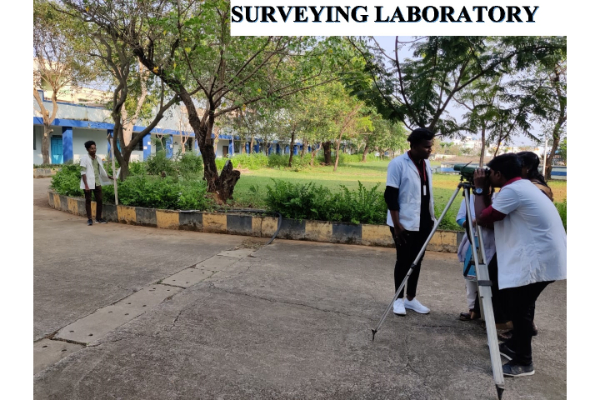
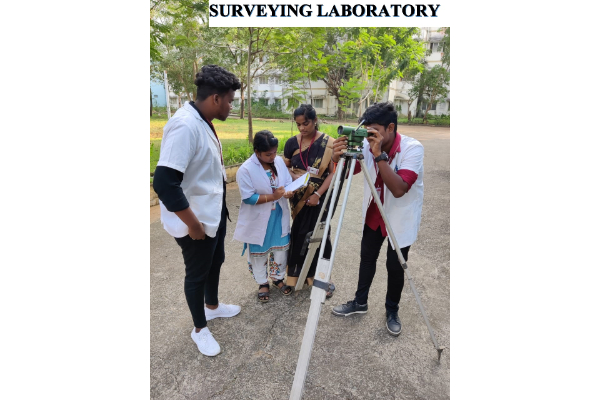
The strength of materials laboratory was established in 2009. Demonstrating the basic principles in the area of strength and mechanics of materials to the undergraduate students through a series of experiments is the objective of Strength of Materials lab. Measuring the properties of the materials such as impact strength, tensile strength, compressive strength, hardness and ductility is conducted in the lab. Students will be able to understand the theoretical concepts of solid mechanics course and enable them to apply it practically in this lab. Different types of tests are being conducted in this laboratory to know the various mechanical properties of a material such as young’s modulus, shear modulus, hardness, toughness, deflection, fatigue strength etc.
List of Major Equipment’s
- Universal Testing Machine
- Torsion Testing Machine
- Impact Testing Machine
- Deflection Testing Apparatus
- Spring Testing Apparatus
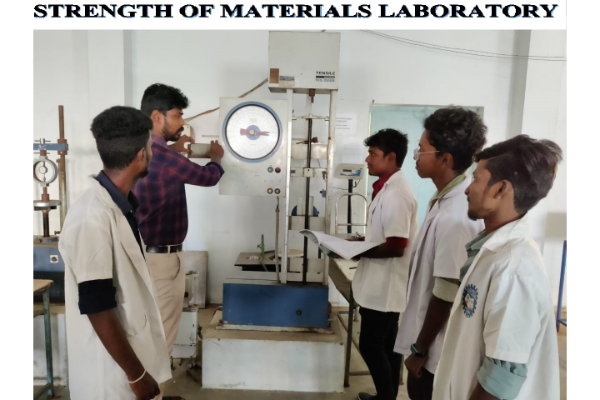
The Hydraulic Engineering Laboratory is established in the year 2011.It is equipped with Large scaled Turbines and efficient pumps with higher degree of accuracy. This enables the student to explore the fundamental principles of fluid mechanics through experimentation, and to investigate engineering design principles for pipe networks, open channel systems, and ground water regimes.
Most of the experiments are designed to be performed by the students groups of four persons. These group experiments are fully interactive and involve: (1) set-up; (2) operation; (3) measurement; (4) adjustment; (5) data gathering; and (6) data reduction. The group approach also teaches the value of teamwork in problem solving during the laboratory period, as well as after class as data are exchanged and reduced.
List of Major Equipments
- Pelton Turbine
- Kaplan Turbine
- Francis Turbine
- Pipe apparatus to determine losses in pipes
- Pumps
- Centrifugal pump
- Multistage Centrifugal pump
- Reciprocating pumpear oil pump
Notches.
Soil Mechanics Laboratory was established in the year 2013. Soil Mechanics is an important branch of Civil Engineering that contributes to the understanding of ground behavior. Laboratory testing forms an integral part of the studies required to provide engineering parameters in the design of building and bridge foundations, dams, road and airfield pavements, tunnels, embankments and slopes. Our soil mechanics laboratory is well equipped and provides students with all facilities required to deepen their understanding of the principles governing soil engineering properties and behavior.
List of Major Equipments
- Sieves
- Standard Penetration Test Apparatus
- Hydrometer
- Liquid and plastic limit apparatus
- Shrinkage limit apparatus
- Proctor compaction apparatus
- Universal Testing Machine( UTM)
- Direct shear apparatus
- Field density measuring device
- Tri axial shear apparatus
Three gang consolidation test device
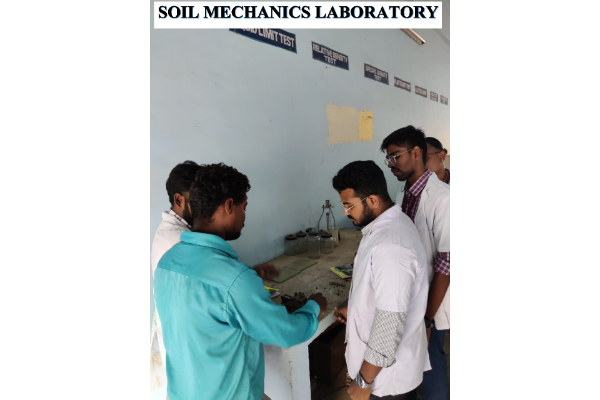
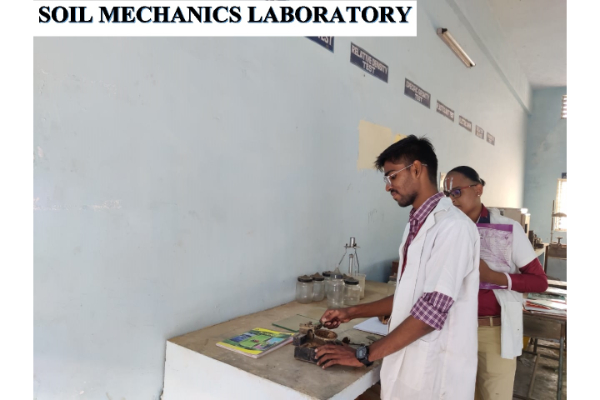
The Environmental Engineering Laboratory was established in the year 2013. The Environmental Engineering Laboratory is sound equipped to meet the academic requirements of undergraduate programme. Modern equipment’s are added periodically keeping abreast of latest technological advancements which in turn helps us to render assistance to the students in carrying out innovative projects and to maintain stringent quality and accuracy in our test procedures. We routinely analyze for a variety of organic and inorganic parameters including taste and odor compounds in drinking water.
List of Major Equipments
- O.D Incubator
- Visible Spectrophotometer
- Ion Analyzer
- Microprocessor Based Gas Chromatograph
- COD Analyzer
- Atomic Absorption Spectrophotometer
- Floculator CJar Testing
- Muffle Furnace
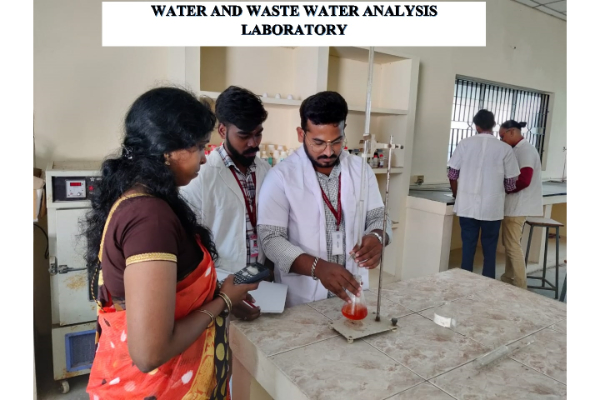
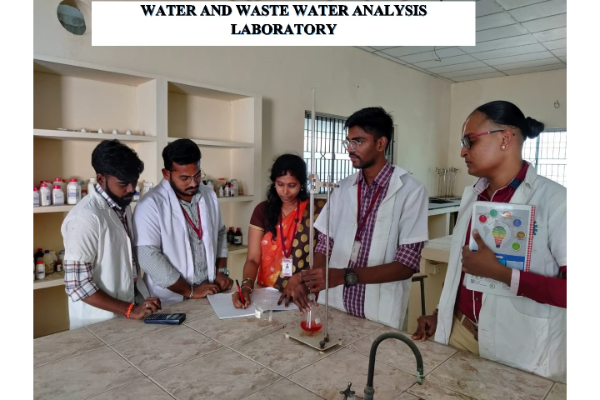
The concrete and Highway Engineering Laboratory established in the year 2013. The concrete laboratory is equipped with all the latest equipment’s for testing the quality of cement, fine aggregates and coarse aggregates, concrete cubes and sieve analysis of aggregates. Students can able to do mix design, casting the specimens and test the same for their respective strengths. Self-compacting concrete equipment’s is also available to test the flowability properties of SCC.
The objective of highway Engineering laboratory is to determine the properties of coarse aggregates and bitumen. Experiments include impact test, abrasion test, crushing strength test for coarse aggregates, and Marshal Stability test, Bitumen penetration test, Ring and Ball test, viscometer test, Bitumen Extractor, Ductility Testing machine, Flash and fire point test and Film stripping device for Bitumen.
List of Major Equipments
- Universal Testing Machine – 400 Ton Capacity
- Compression Testing Machine
- CBR Apparatus
- Los – Angeles Abrasion Testing Machine
- Marshal Stability Apparatus
- Film Stripping Device
- Load cell with Indicator- 250 kN.
- Ductility Testing Machine
- Self-Compacting Concrete Equipment’s.
- V- Funnel Test Apparatus
- U- Box Test
- L- Box Test
- J- Ring Test Apparatus
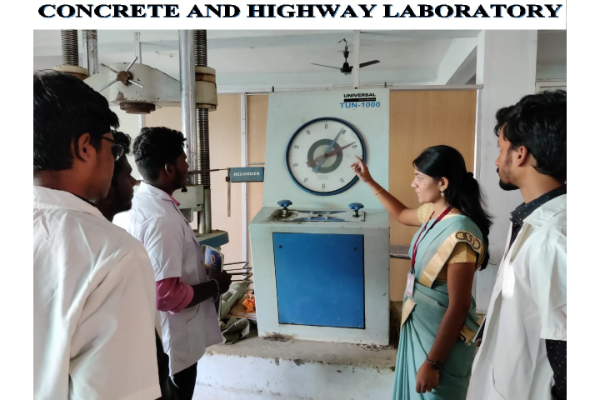
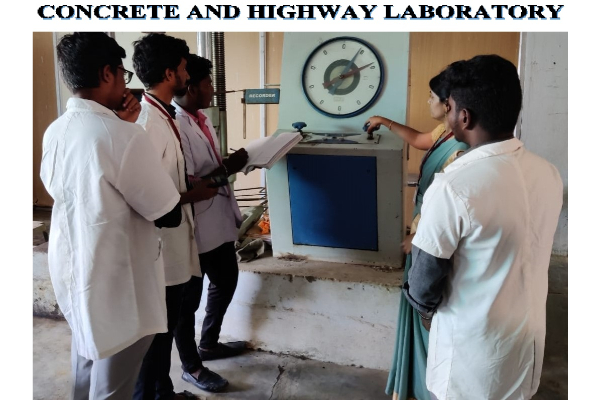



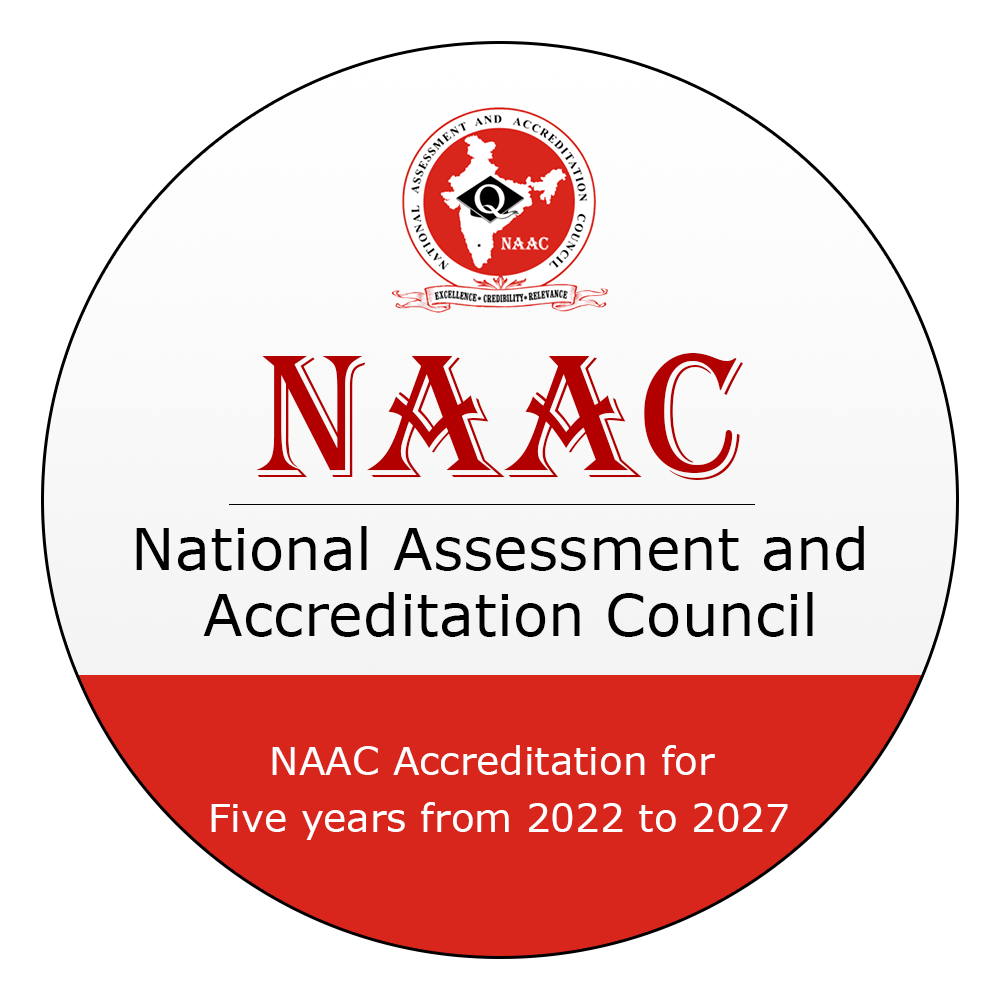





For Online Grievance : onlinegrievance@jec.ac.in